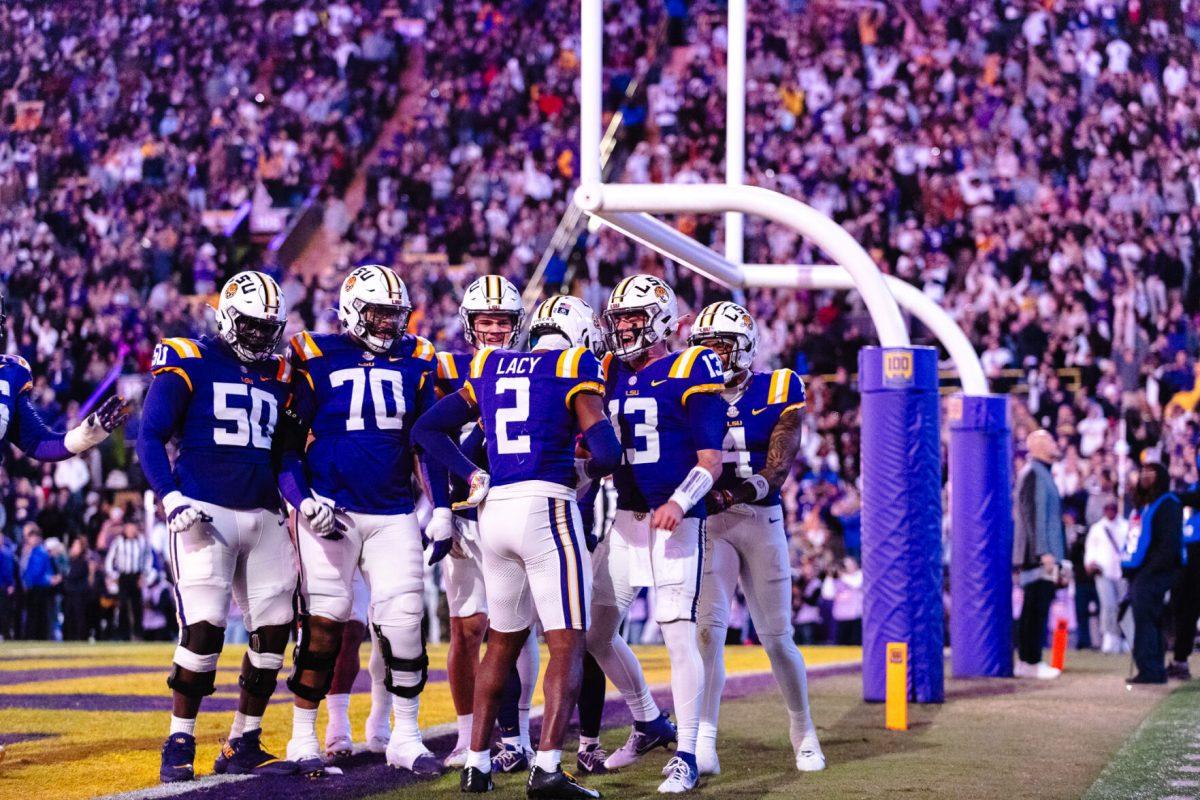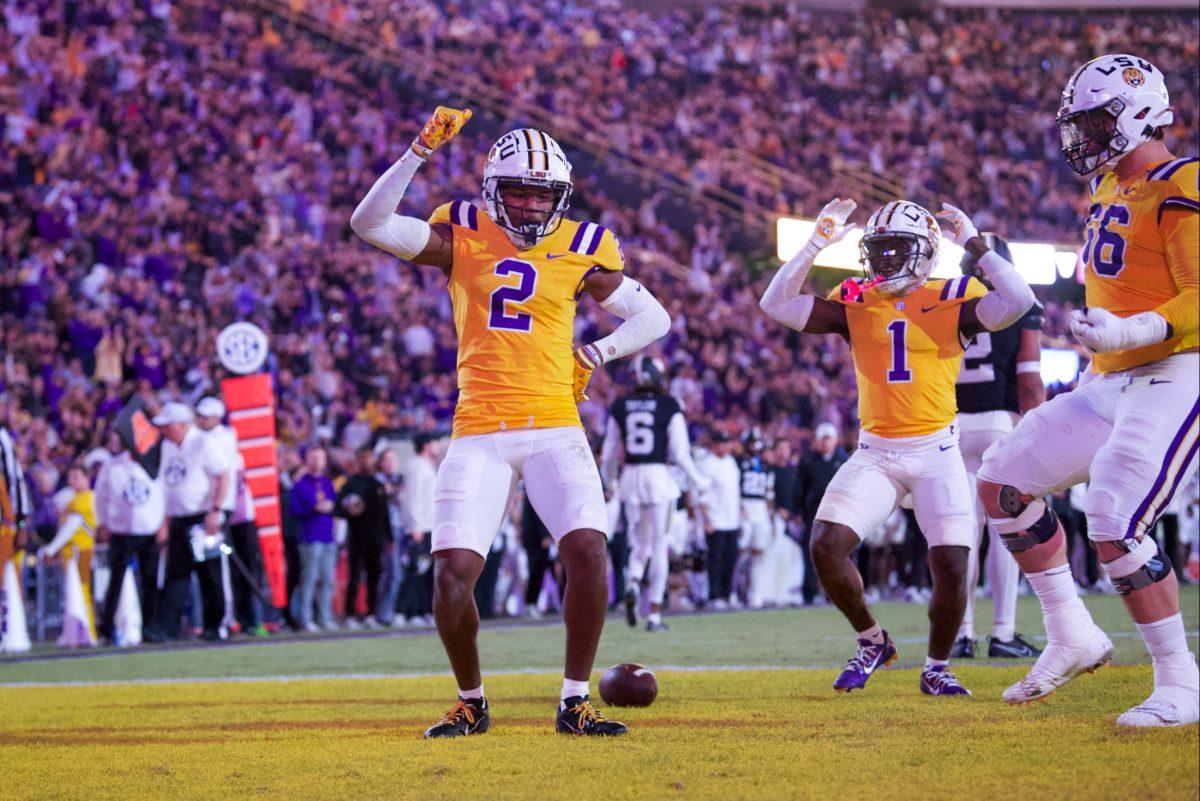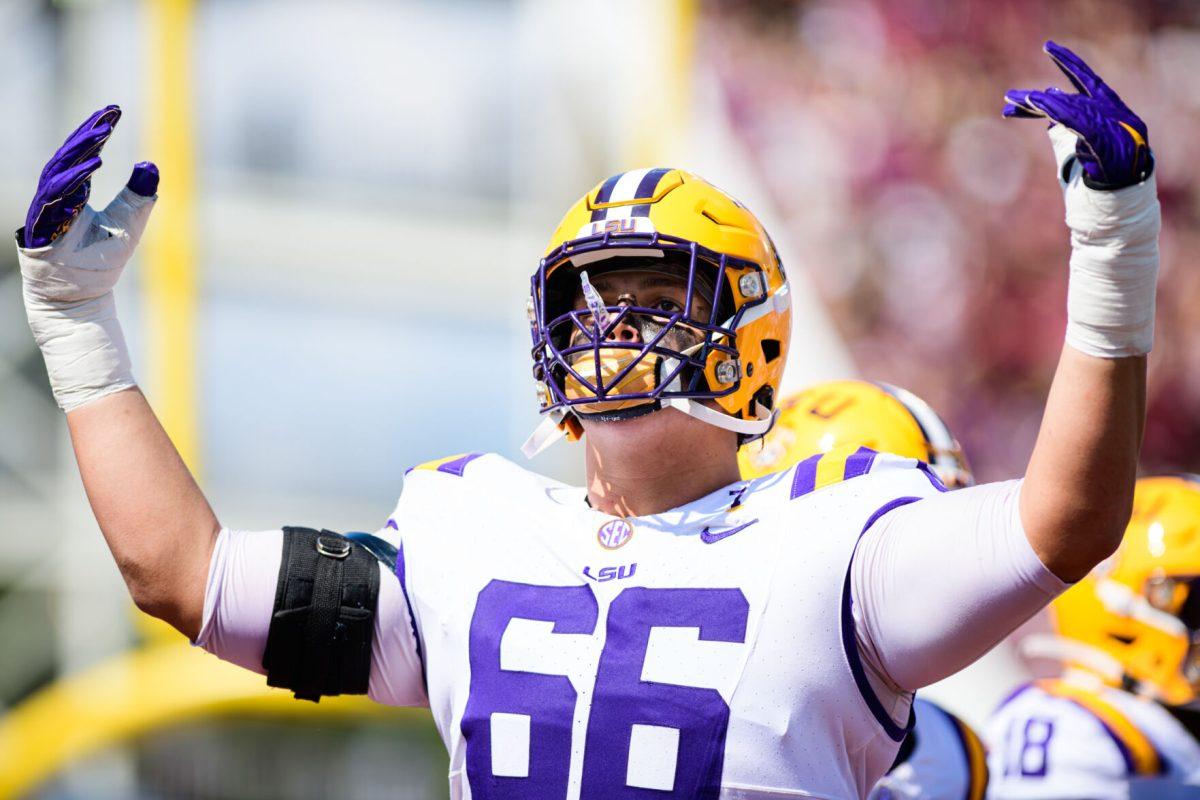There’s just something eerie about LSU’s relationship with North Texas.
Hurricane Isaac threatened to, among more important things, cancel the football team’s opener against the Mean Green. It was a familiar situation for Coach Les Miles.
“Good news is, we’ve been through this before,” Miles said on Monday as Isaac approached Southeastern Louisiana. “We know how to do this. We’ll figure it out.”
Miles was, admittedly, a “novice LSU coach” the other time this exact situation reared its head.
The day for which he’d been preparing for months, his debut as the Tigers head coach against North Texas, was a mere five days away when Hurricane Katrina devastated the Gulf Coast in 2005.
Sure, the last time North Texas was on the schedule in 2008, Hurricane Gustav also delayed the Troy contest and caused much more surface damage to campus than its predecessor.
But the gash caused by Katrina was deeper and wider, throwing the lives of thousands along the Gulf into disarray.
Everyone involved in Miles’ new football program was included.
Some players couldn’t contact their parents. The early schedule was shot. Somehow, Miles still kept it together — made the most of it, even — despite the initial disappointment felt by fans and the administration.
Isaac followed Katrina seven years to the day, with the same opponent waiting at the of end LSU’s week.
The outcome is different: the Tigers and the Mean Green will clash Saturday. But the similarities still serve as a reminder of both the resiliency of the University and the way Miles showed he belonged, more than any tune-up win could.
Sorting the situation
Skip Bertman was in the middle of his seven-year tenure as LSU’s athletic director when Katrina imposed. He’d hired Miles eight months earlier to replace Nick Saban, who turned the program into a perennial contender before he left for the Miami Dolphins.
For that reason, fans had lofty expectations, and they were hard enough to meet without Katrina’s chaos.
“What they didn’t quite understand was that a football coach considers any kind of outside influence clutter,” Bertman said. “…This was the mother of all outside problems.”
Health officials from around the country descended on campus to set up in the PMAC what would become the largest acute care hospital in U.S. history at the time. Much like during Isaac, special needs patients filled the Carl Maddox Field House.
Helicopters frequented LSU airspace for weeks, touching down at Bernie Moore Track Stadium to drop off critical victims and emergency personnel at the care center, including one carrying President George W. Bush. Football was not a priority for the University.
Even though he had to impress on the field, it wasn’t exactly a top priority for Miles either. His players spent time with patients in the health care facilities, the visits cutting into their already limited practice time. Shawn Jordan, a fullback for the Tigers at the time, said the team helped run and contributed to food drives.
“He was emphasizing to take care of the people in the community and do whatever’s right,” said Doug Tatum, the Times-Picayune’s deputy sports editor at the time. “The football team was grounded and they would play and represent LSU’s interests.”
Before it could turn its focus to football, the team also had its own personal problems to address. Approximately 25 players couldn’t locate their families in the aftermath, Bertman said.
“Kenny Hollis, who was a linebacker for us, his fiancée and his little girl were in Mobile and he drove in the middle of the night to go pick his family up,” Jordan said. “So yeah, it was hard for us to focus on what we were doing, but all the coaches were very understanding and they really were there for the players on the team as well as trying to [find] things for us to do so we could help out.”
Undeserved criticism
The last step to relative normalcy was overhauling the schedule. The North Texas game was moved to an open date later in the season. The recovery effort on campus forced LSU to move their home matchup with Arizona State to Tempe, Ariz. Following the 35-31 win against the Sun Devils was the Tigers’ lone bye week in 2005.
If that wasn’t enough, Hurricane Rita forced the first home game from a Saturday to a Monday, forcing the chancellor to cancel school. The team roared out to a 21-0 lead over Tennessee at halftime before the emotional drainage started to show.
“That was their first game back in Tiger Stadium and you could definitely get the sense that they were playing for the state of Louisiana,” Tatum said. “They came out so strong and so fired up, I think they might not had enough in the tank in the second half.”
The Tigers lost to the Volunteers in overtime, 30-27. They wouldn’t lose again until the SEC Championship, taking a 34-14 beating from Georgia. The schedule shuffle meant 11 straight weeks of football. They were exhausted.
“These kids aren’t special forces units in the United States military; they’re just college football players,” Bertman said. “They can’t play every seventh day with a schedule like ours and not lose.”
With four weeks of rest, Miles’ team returned to the Georgia Dome and doled out its own 40-3 beating to Miami. Still, some fans weren’t satisfied. Neither was the LSU System Board of Supervisors, according to Bertman.
Bertman said the board, “even the president of the University at the time,” criticized Miles for losing the Tennessee and Georgia games. He said he was shocked that “intelligent people … [with] Ph.Ds” wouldn’t consider the hurricane’s effect when judging Miles’ performance in his debut season.
“The whole year was a tremendous burden for all the football players, all the coaches and particularly, the head coach,” Bertman said. “He handled it with class, dignity and a tremendous amount of compassion, and still came out 11-2 in a year where he would’ve won all 13 in my opinion, had there been no hurricane.”
‘He did a great job.’
If they were upset then, they have to be more than happy now. Two seasons later, Miles brought LSU to its second BCS Championship of the decade. Another was well within reach last season, and his team is a favorite to reach the game again this year.
The Tigers, and LSU as a whole, dodged Isaac virtually unscathed compared to seven years ago. They will meet North Texas on Saturday and when they do, the region’s, the University’s and Miles’ ability to rise above the surging tide will be at the forefront of many minds.
“Doctors, nurses that stayed there, police officers, first responders — they were all heroes,” Bertman said. “But there was also a hero and he was a football coach. And he did a great job.”







